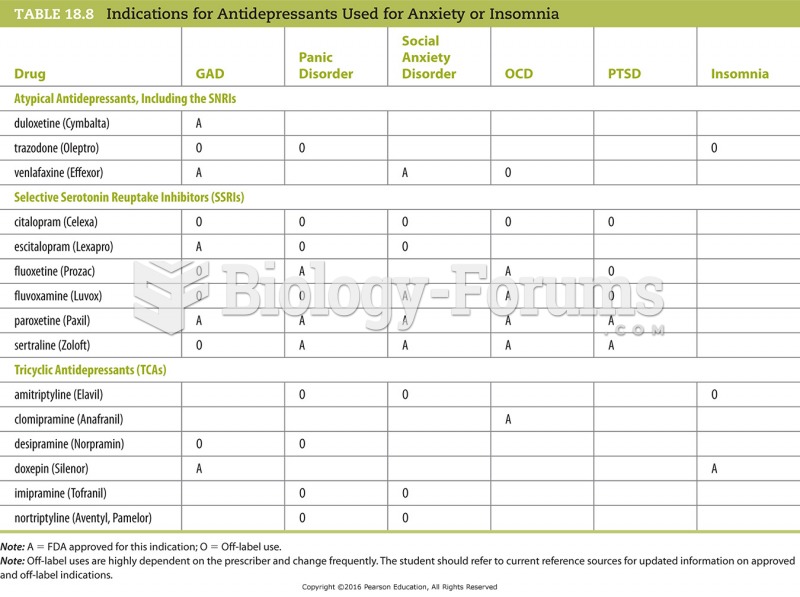This topic contains a solution. Click here to go to the answer
|
|
|
Did you know?
In 2010, opiate painkllers, such as morphine, OxyContin®, and Vicodin®, were tied to almost 60% of drug overdose deaths.
Did you know?
Egg cells are about the size of a grain of sand. They are formed inside of a female's ovaries before she is even born.
Did you know?
The horizontal fraction bar was introduced by the Arabs.
Did you know?
Everyone has one nostril that is larger than the other.
Did you know?
There are more nerve cells in one human brain than there are stars in the Milky Way.







